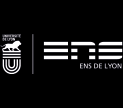Tracés, n°45/2023-2
« L'origine des inégalités » : résurgences et réappropriations d'un grand récit
Tracés, n°45/2023-2
« L'origine des inégalités » : résurgences et réappropriations d'un grand récit
L'État sans frontières
The borderless state. Comment les migrations transforment l'État ?
How migrations transform the states Sociétés, Espaces, Temps
Entretiens Ferdinand Buisson
Entretiens Ferdinand Buisson
Entretiens Ferdinand Buisson
Des savants aux chercheurs
From Scholars to Researchers. Les sciences physiques comme métier (1945-1968)
Physical Sciences as Craft (1945-1968) Éducation et savoirs en société
This book offers a socio-history of the silent revolution that took place between 1945 and 1968 in professional practices in the physical sciences. How did physicists and chemists, most of whom considered themselves to be scholars, became researchers?
Mots. Les langages du politique, n°135/2024
Nommer le religieux
Naming the religious Self- and hetero-denomination are embedded in social interactions and carry political, legal, cultural and social conflicts. Through five case studies addressing the question in different religions, this special issue examines the social logics behind the scholarly and non-scientific patterns of religious naming processes.
Histoire de l'éducation, n°161/2024
Se soustraire à l'empire des grands. Enfance, jeunesse et agentivité (1500-1850)
Childhood, youth and agency (1500-1850) This dossier encourages a reflection on the experiences of children and the agency of youth (between adapting and resisting) in France and the neighbouring countries over a long period of time and using a wide range of sources. It thereby aims to shed light on the way in which children took action within social structures.
Repères, n°69/2024
À quoi servent les évaluations institutionnelles ?
What are institutional assessments used for? This issue offers critical analyses that examine how institutional assessments, which have sometimes-intertwined certifying, selective and/or informative functions, influence teachers' practices and teaching choices and, as such, are used for the political management of teaching.
|
Catalog
- Philosophy
- Literature
- Linguistics
- Sciences
- History, Geography, Sociology
- History of books
- History of Science
- Education
- Arts
- Economics
- Political Science
- Sources

